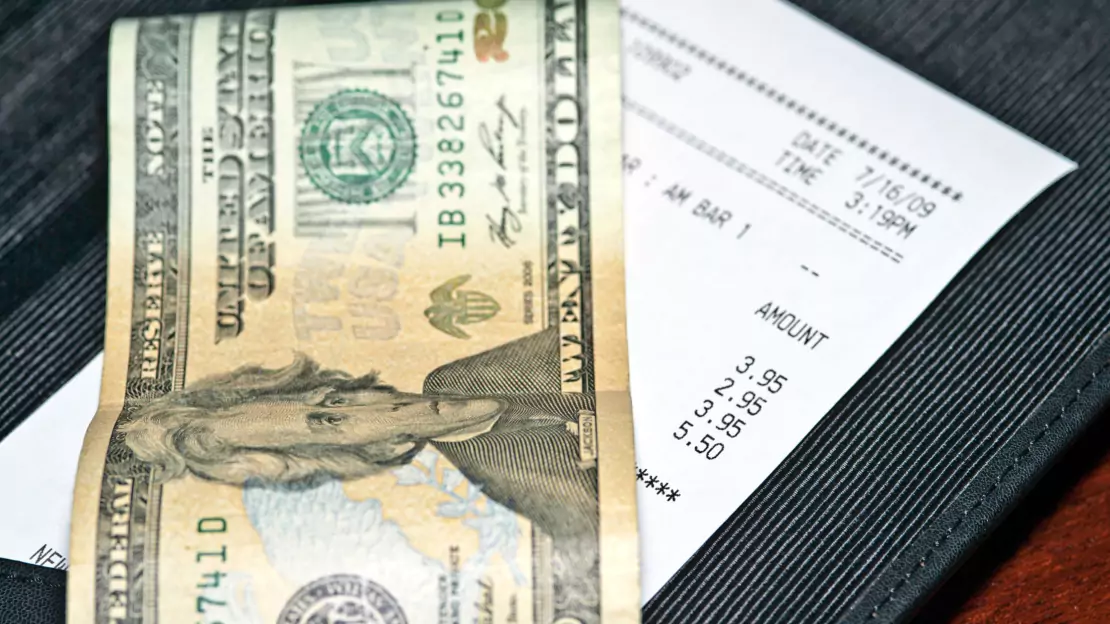Don’t Let FICA Taxes Tip the Scales

Authored by: Doug Gross – Partner, CPA, CGMA
As a restaurant, café, or bar owner, you are undoubtedly acquainted with the intricacies of payroll management and the importance of complying with complex tax regulations. Properly utilizing the FICA Tip Credit represents a valuable yet often disregarded chance to maximize your savings. MBE CPAs specializes in restaurant accounting and provides thorough knowledge and guidance on this tax provision. This can mean considerable financial advantages for your business, saving you thousands of dollars annually. Let me describe the FICA Tip Credits, their function, eligibility criteria, and how they can benefit your establishment’s financial health
Featured Topics:
What is the FICA Tip Credit?
The FICA (Federal Insurance Contributions Act) Tip Credit is a tax credit that allows employers to recoup some of the costs associated with paying Social Security and Medicare taxes on tipped employees’ earnings. The credit was designed to ease the financial burden on employers who must pay taxes on tip income received by employees, even though those tips are primarily earned through customer gratuities rather than the employer’s wages.
Why Does This Matter for Restaurant Owners?
The restaurant industry is unique because of the reliance on tipped employees. While the federal minimum wage for tipped workers is $2.13 per hour, restaurant owners are still required to contribute to FICA taxes based on the full income of their employees, including tips. As a result, a significant portion of the employer’s tax liability is calculated on money that doesn’t directly come from the business’s payroll.
The FICA Tip Credit effectively offsets some of these payroll tax expenses by allowing employers to claim a credit equal to the Social Security and Medicare taxes they pay on tips above the federal minimum wage.

How the FICA Tip Credit Works
The FICA Tip Credit applies to the employer’s portion of the payroll taxes (7.65% of employee earnings) on tips exceeding the federal minimum wage of $5.158 per hour (as established in 2007). Here’s a step-by-step breakdown:
- Identify Tipped Employees: Any employee who receives more than $30 in monthly tips is classified as a tipped employee.
- Calculate FICA Contributions on Tip Income: The employer is responsible for paying 6.2% for Social Security and 1.45% for Medicare on tipped employees’ total earnings, including their wages and reported tips.
- Apply for the Credit: The credit applies to FICA taxes paid on tips that exceed the federal minimum wage of $5.15 per hour, regardless of the state’s minimum wage laws.
- Claim the Credit: The FICA Tip Credit is claimed on IRS Form 8846, part of the General Business Credit.
Example Calculation
Suppose a server earns $2.13 per hour in wages plus $15 in tips per hour. The total income is $17.13 per hour. The employer must pay FICA taxes on the $2.13 wage and the $15 tips, but the credit can be applied to the portion of the FICA taxes paid on the tips exceeding $5.15 per hour. In this case, the tips subject to the FICA credit would be:
$15 (tips) – $5.15 = $9.85 per hour eligible for the FICA credit.
The employer can then claim a credit for 7.65% of that $9.85 per hour, effectively reducing their tax liability.
FICA Tip Credit Statistics: The Financial Impact
The FICA Tip Credit can offer substantial savings for restaurant owners, especially in industries with a high concentration of tipped employees. Here are some statistics to consider:
- According to the National Restaurant Association, there are approximately 5 million restaurant employees in the United States, many of whom rely on tips as a significant portion of their income.
- The IRS reports that over $36 billion in tips are reported by employees annually, meaning that the FICA Tip Credit can offset millions of dollars in employer-paid taxes.
- Depending on the size of the restaurant and the number of tipped employees, restaurants can save up to 45% on their payroll tax expenses through the FICA Tip Credit.
Eligibility and Compliance
While the FICA Tip Credit offers tremendous tax savings, restaurant owners must comply with all IRS regulations to maintain eligibility. Here are some key requirements:
- Accurate Tip Reporting: Employees must report their tip income to the employer, which is then subject to payroll taxes.
- Payroll Documentation: Maintain thorough and accurate payroll records, including employee wage rates, tips, and hours worked.
- Minimum Wage Requirements: The FICA Tip Credit only applies to the portion of tips that exceed the federal minimum wage per hour, regardless of state minimum wage rates.
Common Mistakes to Avoid
1. Not Taking the Credit: Many restaurant owners are unaware of the FICA Tip Credit or mistakenly believe they don’t qualify. MBE CPAs understands the credit and can help you make sure that you’re applying it correctly.
2. Mishandling Tip Reporting: If employees fail to report tips accurately, it can lead to costly payroll tax audits.
3. Misunderstanding Wage Requirements: Some business owners mistakenly believe that state minimum wages impact their eligibility for the FICA Tip Credit. Remember, the credit is calculated using the federal minimum wage, not the state minimum.

Hiring an Accountant Specializing in Restaurants & Hospitality
Given the complexities of payroll taxes and tip reporting, it’s highly recommended that restaurant owners work with an accountant specializing in the restaurant and hospitality industry. We are familiar with the FICA Tip Credit and understand other industry-specific tax benefits, such as Work Opportunity Tax Credits (WOTC) and depreciation schedules for restaurant equipment.
When choosing an accountant, ensure they have experience in:
- Payroll Compliance: Managing minimum wage laws, overtime pay, and tipped employee wages.
- Tax Planning and Credits: Maximizing savings through the FICA Tip Credit and other applicable incentives.
- Audit Support: Should you ever be audited, an industry-experienced accountant will assist in verifying that your records are accurate and compliant.
Conclusion
MBE CPAs can assist restaurant owners in utilizing the FICA Tip Credit, a valuable tax-saving option that decreases payroll tax obligations on tipped income. By understanding how to apply and use this credit effectively, your restaurant can realize significant financial savings each year. To fully tap into this benefit, it is important to maintain accurate tip records and consult with MBE CPAs, who are experienced in restaurant and hospitality accounting.
